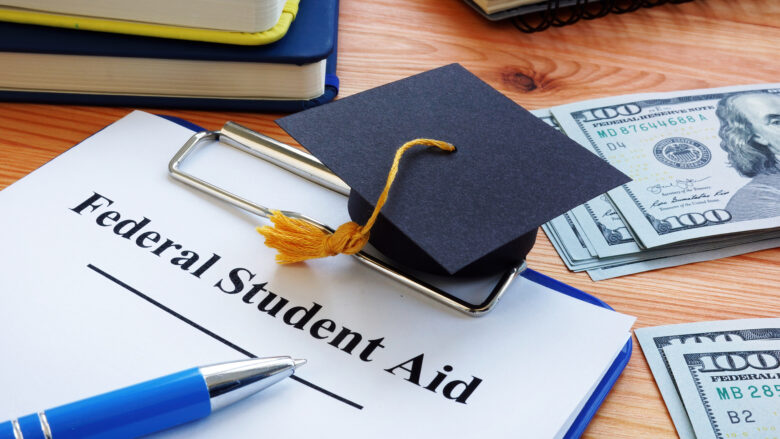Federal student loans and private student loans are two options that students have when it comes to borrowing money for their education. While both types of loans can help students pay for college, there are some critical differences between them that students should be aware of before deciding which option is best for them.
Federal VS Private
One of the main differences between federal student loans and private student loans is the interest rate. Federal student loans generally have lower interest rates than private student loans. This is because the government subsidizes the interest on federal student loans, making them more affordable for borrowers. On the other hand, private student loans are offered by banks and other financial institutions, and the interest rates on these loans are based on various factors, including the borrower’s credit score and the lender’s policies. As a result, private student loans can have significantly higher interest rates than federal student loans. You can learn more about federal loans, how does FAFSA work, and what your options are for repayment by talking to a financial advisor or your institution’s financial office.
Repayment
Another difference between federal and private student loans is the repayment terms. Federal student loans offer a variety of repayment plans that allow borrowers to choose a plan that best fits their financial situation. For example, federal student loans offer income-driven repayment plans enabling borrowers to make monthly payments based on their income. On the other hand, private student loans generally offer fewer repayment options, and borrowers may have a more challenging time finding a repayment plan that fits their needs. However, some private loan providers can offer greater flexibility for students who don’t qualify for federal loans.
Borrower Protections
Another factor to consider when deciding between federal student loans and private student loans is the availability of borrower protections. Federal student loans offer a variety of borrower protections, such as the ability to postpone payments during times of hardship and the option to have the loan forgiven in certain circumstances. Private student loans do not offer these same protections, and borrowers may be on the hook for the total amount of the loan, even if they cannot make payments.
Cosigner
While federal student loans may provide affordable options, they typically have fixed rates, while private lenders can offer flexibility on a case-by-case basis. Though private student loan providers typically require a cosigner, some groups provide alternative loans without a cosigner or good credit. Ascent is a personal finance company and lender that helps individuals build financial plans that work for their budgets, careers, and goals. Ascent understands that many students are looking to pursue higher education independently and may need more support if they cannot secure a cosigner or good credit while working towards college. For these reasons, Ascent offers a beneficial Outcomes Based loan program for students without cosigners and with poor credit. These loan options are essential for students looking for even greater flexibility with their student loans and repayment plans. Don’t let financials hold you back from pursuing the future you want. Speak with a financial advisor at Ascent today to learn more about your loan options.
Private Loan Flexibility
There are a few reasons why a student might choose a private student loan over federal student loans. One reason is that the student may need to borrow more than the federal loan limits allow. Federal student loans have maximum limits on how much a student can borrow, and if a student needs to borrow more than these limits, they may need to turn to private student loans.
Another reason a student might choose a private student loan is if they cannot qualify for federal student loans. Federal student loans are need-based, meaning a student’s eligibility is based on their financial need. A student must demonstrate financial need to be eligible for federal student loans. On the other hand, private student loans are not need-based and may be an option for students who do not qualify for federal student loans.
Finally, a student might choose a private student loan if they want a specific repayment option or benefit not offered by federal student loans. For example, some private student loans offer interest rate discounts for borrowers who make their payments on time or allow borrowers to choose a repayment plan that fits their financial situation. If a student is looking for a specific repayment option or benefits not offered by federal student loans, they may choose a private student loan.
Overall, federal and private student loans are options that students can use to pay for college. Federal student loans generally have lower interest rates, more repayment options, and more borrower protections than private student loans. However, private student loans may be a good option for students who cannot qualify for federal student loans or who need to borrow more money than the federal loan limits allow. It is essential for students to carefully consider their options and choose the loan that is best for their individual needs.
Article by Born Realist






